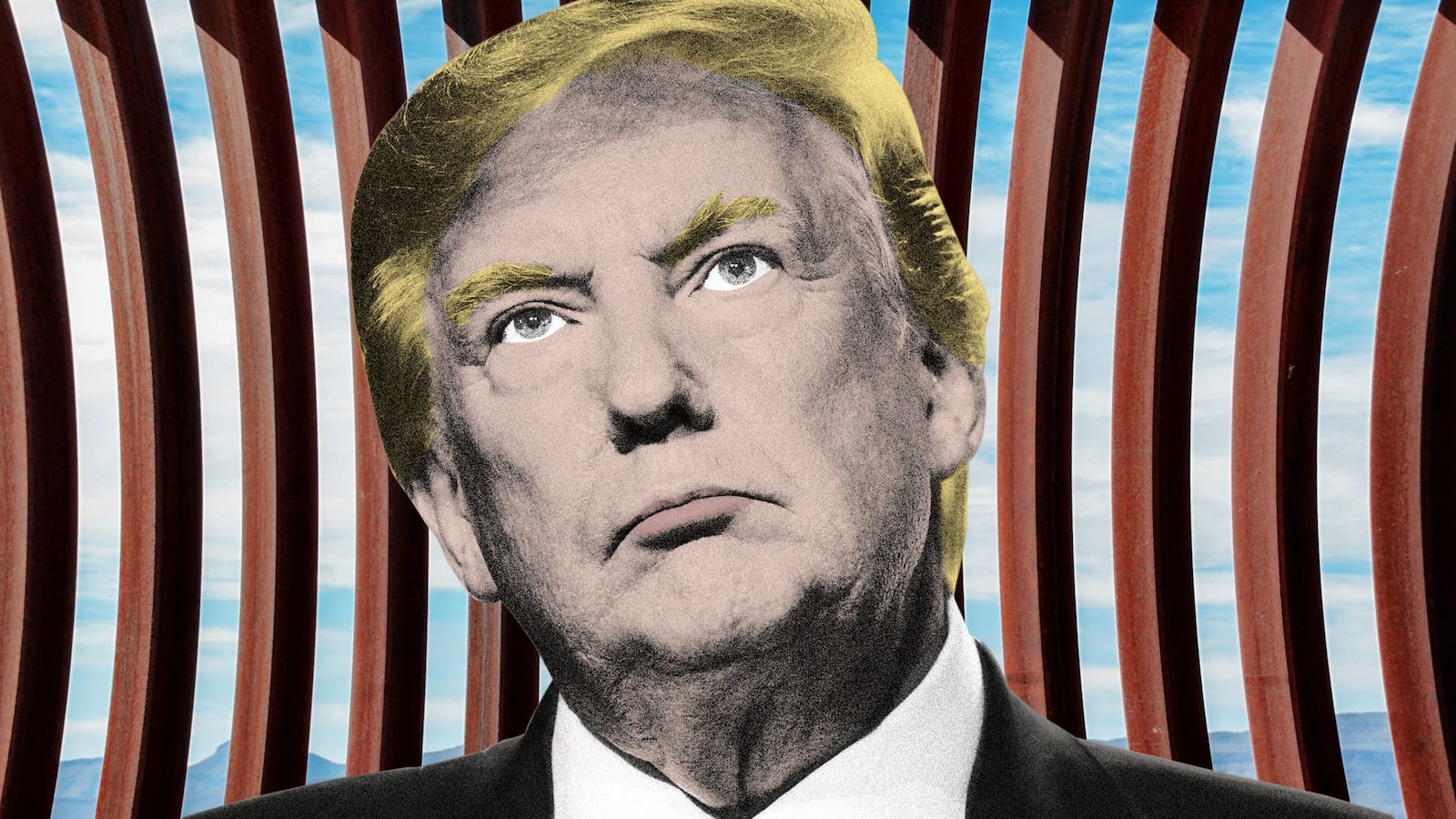“I am not a crook.”
“I did not have sexual relations with that woman.”
“Just joking.”
That last line may be the Trump administration’s way of maintaining plausible deniability when dangling pardons.
The Washington Post reported this week that Trump has told aides that he will pardon them if they have to break laws to build a border wall.
Trump’s statement reportedly came as he pushes aides to build a border wall before the 2020 election to make good on his campaign promise, even if it requires seizing private land and disregarding environmental rules. When aides have protested that some of his orders violate the law, the Post reported that Trump told them that they should proceed anyway, and that he will pardon them of any wrongdoing if necessary.
An anonymous White House source did not deny the reporting, instead explaining that Trump is joking when he makes such statements.
Hilarious.
Trump’s former press secretary Sean Spicer said that Trump was also joking in July 2016 when he publicly stated, “Russia, if you’re listening, I hope you’re able to find the 30,000 emails that are missing,” referring to emails deleted from the private email server that Hillary Clinton used as secretary of state. But the Russians didn’t get the joke. Less than five hours later, Russian intelligence officers attempted to hack into Clinton’s email account, according to an indictment returned by Special Counsel Robert Mueller. Trump may have been joking, but others took action that violated the law and benefited Trump.
It has been said that we should learn to take Trump seriously but not literally. But Trump is no longer just the loudmouth at the country club, spouting off about current events to hangers-on. What might have passed as edgy, off-the-cuff humor from a political candidate is something else entirely when it comes from the commander-in-chief. Words have consequences. And when words constitute orders from the nation’s top government officer, it is reasonable to expect that those words will be obeyed.
Words can even become criminal under certain circumstances. Under federal solicitation law, if someone “commands, induces or procures” the commission of a crime, he is as guilty of the offense as if he committed it himself. If two or more persons agree to commit a crime, and one of them does an act in furtherance of the agreement, both can be charged with conspiracy. In both instances, a prosecutor would have to prove that the person acted knowingly and intended the crime to be committed, and that he was not “just joking.”
Of course, we have all learned by now that a sitting president cannot, or at least will not, be indicted. Trump is likely feeling emboldened by his experience with the special counsel. Despite findings by Mueller and his team of substantial evidence that Trump engaged in multiple acts to obstruct their investigation with a corrupt purpose, no criminal charges were filed.
Imagine for a moment that Trump is not joking when he asks aides to complete the border wall by any means necessary, even if they have to break the law? The pardon power is absolute when it comes to federal offenses, and so he could make good on his promise, and pardon anyone charged with a crime for obeying his orders. What would be the recourse against Trump? If Trump cannot be charged with a crime, then the only remedy to hold him accountable would be impeachment and conviction. Even if the House of Representatives had the will to proceed to impeachment, would the Republican-controlled Senate convict? Or would they continue to enable Trump’s norm-busting behavior?
Pardon dangling is not a new topic when discussing Trump. During the Mueller investigation, some evidence suggested that Trump’s team dangled pardons to former national security adviser Michael Flynn, former campaign chairman Paul Manafort and former Trump Organization attorney Michael Cohen, all of whom were later convicted of crimes. All three men were in positions to provide prosecutors with information damaging to Trump in exchange for reductions in their sentences. Trump could potentially buy their silence by promising them something even better than a sentence reduction in the form of a pardon.
The Mueller Report chronicled a voicemail message that Trump’s personal lawyer left for Flynn’s lawyer after Flynn withdrew from a joint defense agreement with Trump and others, signaling that he was cooperating with investigators. The message stated that the president had “warm feelings” toward Flynn. Last fall, after it was reported that Manafort was cooperating with investigators, Trump publicly stated that a pardon for Manafort was “not off the table.” CNN reported that after the FBI searched Cohen’s office in April 2018, Cohen received emails from an attorney working with Trump lawyer Rudy Giuliani, assuring Cohen that he could “sleep well tonight” because he had “friends in high places.”
The Constitution vests the president with the pardon power. A pardon is intended to express forgiveness and mercy. It recognizes a defendant’s acceptance of responsibility for his crime and good conduct demonstrated over a significant period of time following the completion of his sentence. To instead use the pardon power as a way to enable government employees to violate the law for the president’s personal political advantage without criminal consequence is a gross deviation from the rule of law.
If Trump’s promise of pardons was just a joke, it wasn’t very funny. And there is a danger that aides will take Trump’s commands literally and obey them. If so, will Trump’s contribution to the canon of presidential lies be the “just joking” defense, a new way to falsely claim plausible deniability?






